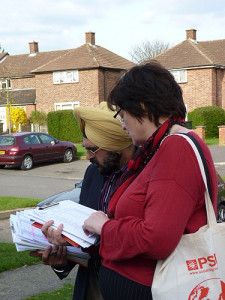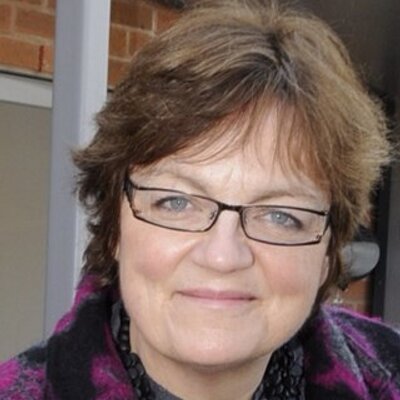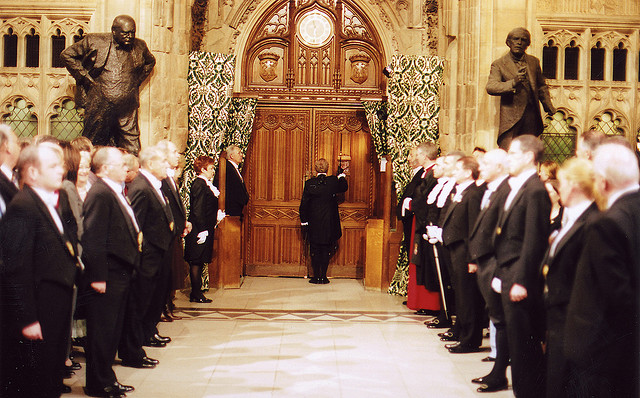British democracy is made stronger by greater diversity, though we still have much further to go
In a recent debate in the House of Commons on representativeness, MPs debated just how much Parliament resembles the country it serves. During that debate, the Labour MP for Slough Fiona Mactaggart talked of the importance of representativeness, and made the case for a redoubling of efforts to improve Parliament in this key regard.
I was proud to serve as a member of the Speaker’s Conference on Parliamentary Representation and I want to reflect on some of its broader aspects, because I think it is regarded as being just about how to change the composition of the House of Commons. In fact, it was a big reflection on democracy and politics. I strongly recommend to my fellow MPs that they read the whole report because there is not enough in politics today that makes the case for political parties and for an active democracy. That is what I think the conference did.
The reason issues of representation became so core to this is that in order for democracy to work, people need to trust politics. In order to trust those of us who are professional politicians, they have to think that we get what is happening in their lives. That means that we have to look normal to them. When Ed Miliband demonstrated the other day that the composition of the Government Front Bench was all-male on that day, one of the reasons that it had so much resonance was the sense that half the country felt that they were not there —that we are extremely odd, peculiar and not like them. Until there is a sense that politics gets it and that it is like us, that gap of trust between the voter and the ‘votee’, if I may call us that, will grow. It is extremely significant.
It is only in the past four years, for example, that we have had any Muslim women in this Parliament. On the Labour Benches in the previous Parliament, the MPs for Gloucester (Parmjit Dhanda) and for Bradford West (Marsha Singh) were Sikhs. Now on the Government Benches Paul Uppal is a Sikh. I know that my Sikh constituents believe that I can understand their issues but they want to make sure that somebody who has the gut feeling, the cultural baggage which is so important to them is part of the conversation. Having that genuinely does change the conversation.
I will never forget the conversation that I had with the Clerk to the Defence Committee in about 1998. I asked him whether having women on the Defence Committee had made a difference. It was the first time there had been any women on that Committee ever. “Of course,” he said. I asked what difference. He said:
“Well, we always used to talk just about how big the bombs were, and now we talk about the families and children of the soldiers and the other people who are out there defending us.”
It seems to me quite obvious that if we are asking someone to be extraordinarily brave, the most important thing for them to know is that their family is safe. It is a no-brainer, but it took women on that Committee to have that insight.
It is true that diversity brings with it different kinds of insight. If we miss out on those insights, politics is poorer. For example, one of the achievements of the Speaker’s Conference was changing the rules in relation to Members of Parliament who have mental health challenges. The interesting thing since those rules changed is that a number of colleagues have been able to come out and say that they have suffered from poor mental health, and that has helped the general public feel, “Oh, maybe they’re more normal.” Confessing to abnormalities has made people feel that we actually have the same struggles and challenges as them.
I did not want ever to speak in Parliament about the fact that I have multiple sclerosis, and I only did so when it was relevant to a debate on stem cell research. That was really important for one of my constituents. He has a much more severe form of the condition than me, but he felt, “If she can do that, I can step up.” There is a sense that if we show people. My Parliamentary colleague David Blunkett made this clear—that we are like them and have had different challenges, politics can be more engaging and make more sense to them.
We still have big challenges. I still regularly hear people saying—I speak as the first generation of my family to speak with a southern accent—“Why don’t I hear more politicians speak like me, with an accent?” We really do need to address such issues.
One of the things that the Speaker’s Conference made clear was the importance of the role of political parties themselves. It said that;
“Political parties are the mechanism by which people of any background can be actively involved in the tasks of shaping policy and deciding how society should be governed […] The extent to which political parties are the subject of both contempt and general public indifference should be a cause of concern to all who are interested in how our country is run.”
That is what I want to address. It seems to me that the biggest risk is to our parties, which are the mechanism through which we can deliver some of the changes needed, yet we do not do it well enough. In introducing this debate, Anne Begg reminded the parties of the commitment they made to publishing their selection records.
I am very proud that I and my Labour colleagues have spoken to at least 18,000 electors in Slough since December. We are very dynamic in the way we go to talk to voters and we can probably claim the best record in the country. That is one of the reasons why I am still the Member of Parliament for Slough, because my constituents know that they can engage with people on the doorstep who are like them—people who might not feel comfortable doing what Members do in this Chamber every day and who might not be able to make the sacrifices in their lives that many of us have made in ours, but who nevertheless recognise that political parties are an agent for change.
One of the things that really worries me is that the media perceive political parties as a conspiracy against the voters and as somehow trying to defraud them, and I believe that we feed that conspiracy by having a lot of private little arrangements to deal with things. For example, we have no formal maternity or sick leave arrangements. Instead, the Whips secretly make deals across the Chamber to pair Members. Why are those things not proper rights and more transparent? We need them to be. The risk of us looking antediluvian and ancient is not just because of who gets here and the fact that we do not reflect the whole of society as well as we ought to, but because of our ancient habits and ways of doing things and our habit of saying across the Chamber, “You’re all bad guys and we’re all good guys.”
At the moment, I am missing a sitting of the pre-legislative scrutiny Committee on the draft Modern Slavery Bill. Its members  are working across parties—in quite an intelligent way, I hope—to herd the Home Office into producing slightly better legislation than would otherwise occur. Listening to them, people would not be able to tell which party they belong to or what line they are taking, because we are united in a common cause. Members from all parties have united with colleagues from across the Chamber on areas on which they have a common cause.
are working across parties—in quite an intelligent way, I hope—to herd the Home Office into producing slightly better legislation than would otherwise occur. Listening to them, people would not be able to tell which party they belong to or what line they are taking, because we are united in a common cause. Members from all parties have united with colleagues from across the Chamber on areas on which they have a common cause.
When we do politics, we should copy the Mars corporation, which does not say, “Cadbury is poisonous; go for Mars”, but, “Ours are just better”. In our politics, we have a real problem or challenge about permitting a discourse saying that the other guys are all evil, rather than that we share many values with them, but disagree about some of the ways to deliver those values.
I am not sure that the victims of bullying do the tarring; I think that our media are unable to differentiate sufficiently between groups of people, and therefore ask whether men have been the source of the bullying. The situation has got a lot better since I first arrived here and went through a door marked “Members only”—I thought that that was for me—only to find a urinal behind it.
Bullying still occurs, but I do not think that it is only by men of women. I feel guilty when journalists ring me about people shouting in Prime Minister’s questions because I have a voice that can very easily be heard and I have been known to behave inappropriately at Prime Minister’s questions. It is not a wholly male thing, because I have done it. I have taken a vow to stop, and I will keep trying to do so. I have also taken a vow to give up chocolate and alcohol during Lent, but I digress.
The point is that there is a risk in saying that a whole class of people is guilty of inappropriate behaviour. One thing that we fail to do is to say that the class of people wanting to represent others is, on the whole, made up of people who are honest and want to make a better world, even though some of them have a very funny idea of what that world should look like. We have not done enough to advocate democratic politics as a better way than any other of changing the world and building a better society. Out of this debate should come very strong consensus throughout Parliament about such a belief, as well as a belief that to make politics stronger, it must be less peculiar, involve more normal people and be more possible for people with a range of challenges in their lives.
We need to make our behaviour to each other more supportive here, so that it is more possible for people to do things. Although I have not had detailed conversations with the women on the Government Benches who will be leaving Parliament shortly, I think that partly what is happening is that they are people whose lives were quite normal; who have not been through generations of hateful politics and developed skin a mile thick; and who found the change to their lives, their income and their families very challenging. They have thought, “What I am giving up and what I am having to put up with is too much.”
We all need to have a bit more solidarity for one another, so that people who want to do that noble thing of representing constituents and building a better world do not get put off by the exigencies of public life. We could all help to meet that challenge through our own behaviour, whether it is by shouting less at Prime Minister’s questions or by offering just a little support to someone when they are having a hard time. Frankly, that is something that political parties do not do sufficiently for our colleagues.
—
Note: this post is a modified version of a speech given by Fiona McTaggart MP to the House of Commons. The unaltered Hansard report can be found here. Please read our comments policy before posting. Inset image credit: Labour (CC by NC SA 2.0) The shortenend URL for this post is: https://buff.ly/1gHlwQC
—
 Fiona Mactaggart has been the Labour Member of Parliament for Slough since being elected at the 1997 General Election. She was re-elected in 2001, 2005 and 2010.
Fiona Mactaggart has been the Labour Member of Parliament for Slough since being elected at the 1997 General Election. She was re-elected in 2001, 2005 and 2010.






 Democratic Audit's core funding is provided by the Joseph Rowntree Charitable Trust. Additional funding is provided by the London School of Economics.
Democratic Audit's core funding is provided by the Joseph Rowntree Charitable Trust. Additional funding is provided by the London School of Economics.
We need a House of Commons that is representative of the views of the electorate, not just the appearance of the electorate. We do not have an adequate diversity of views.
The electoral system ensures that nearly all party diversity except what is seen as the “main stream” is squeezed out (to give “decisive election results”). The parties’ selection committees and whips then ensure that within parties diversity of opinion is squeezed out (to avoid the appearance of splits and disunity).
New on DA today: Fiona Mactaggart MP on the benefits of diversity to British democracy https://t.co/K2GKUbLzVl
British democracy is made stronger by greater diversity, though we still have much further to go https://t.co/TCCRW2dDFm says @fionamacmp
British democracy is made stronger by greater diversity, though we still have much further to go https://t.co/ACGMeYlPCl
British democracy is made stronger by greater diversity, though we still have much further to go https://t.co/2WKQXJQhTW